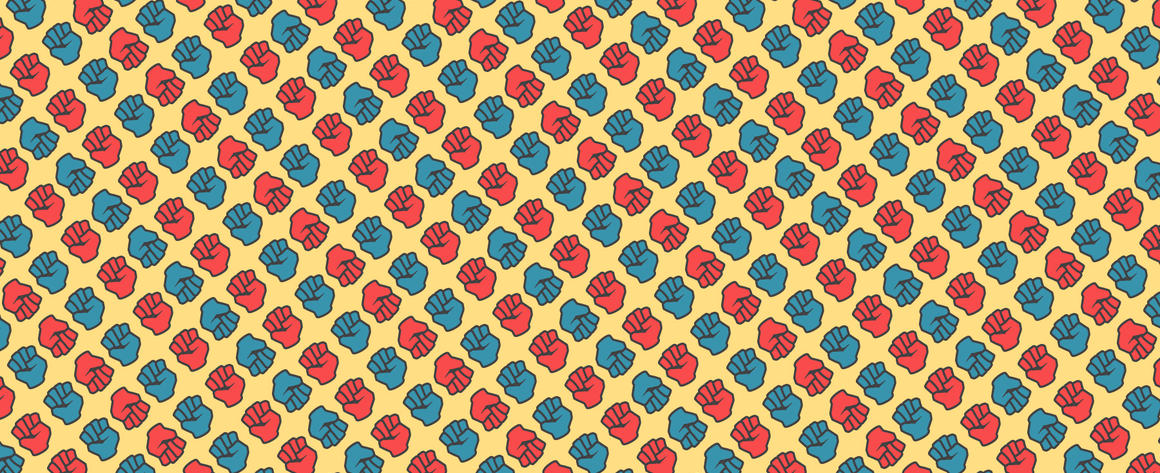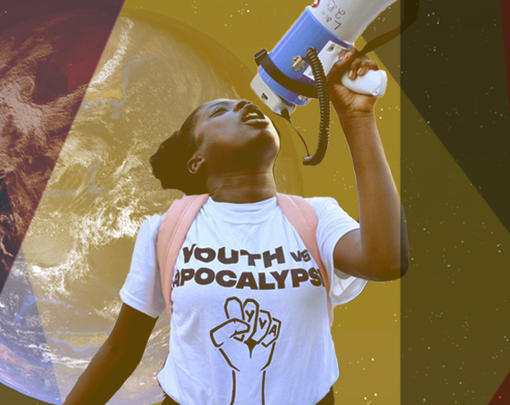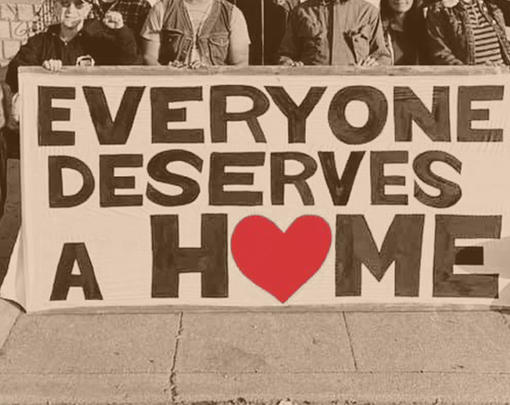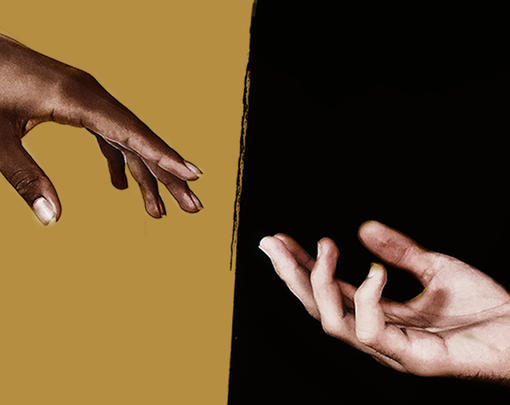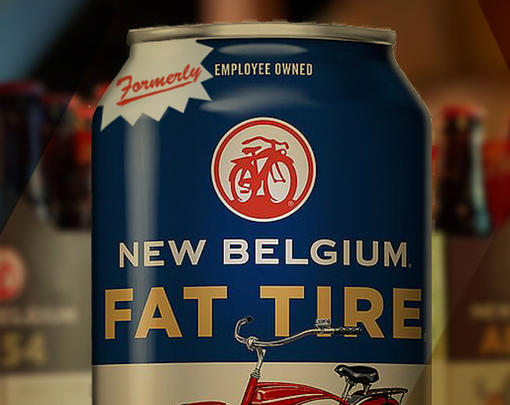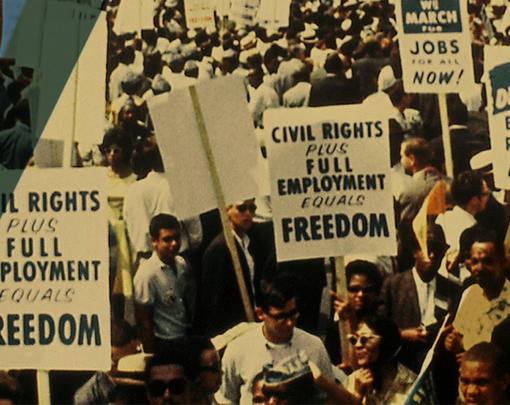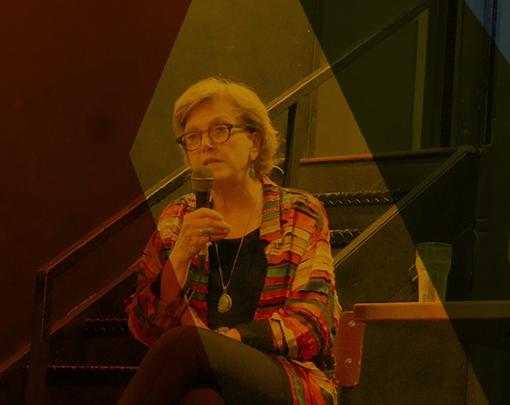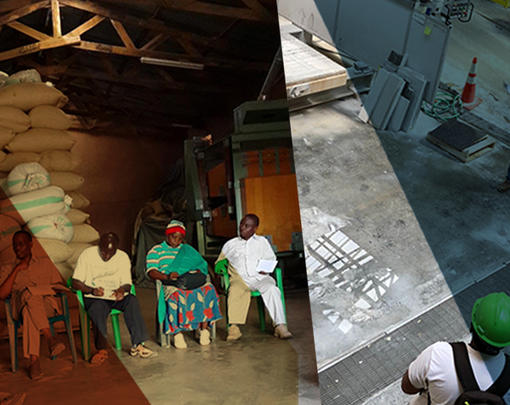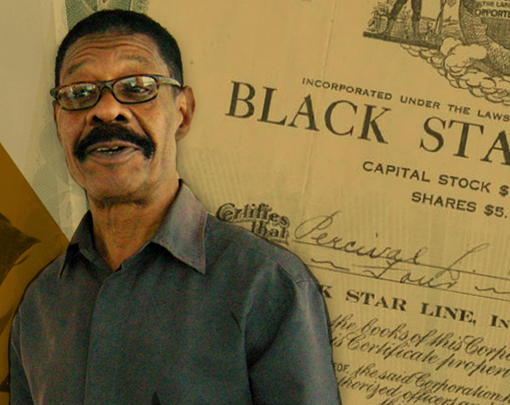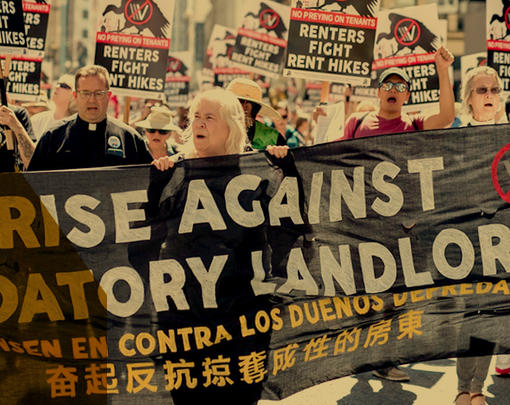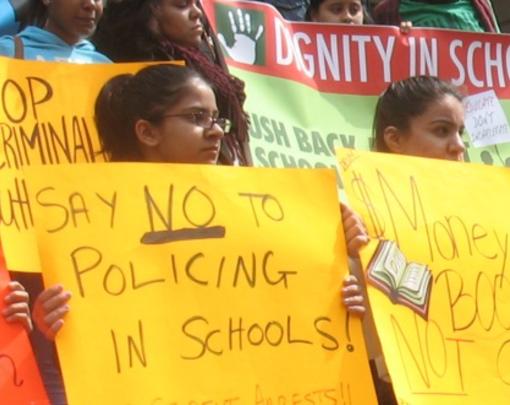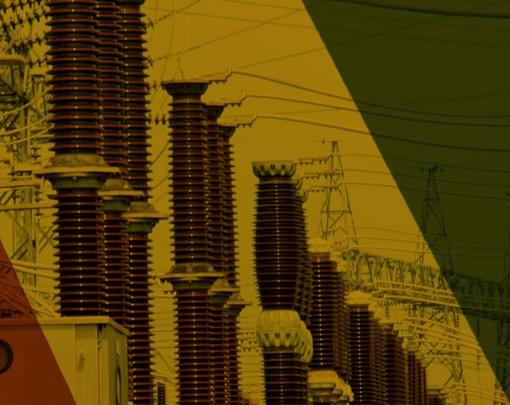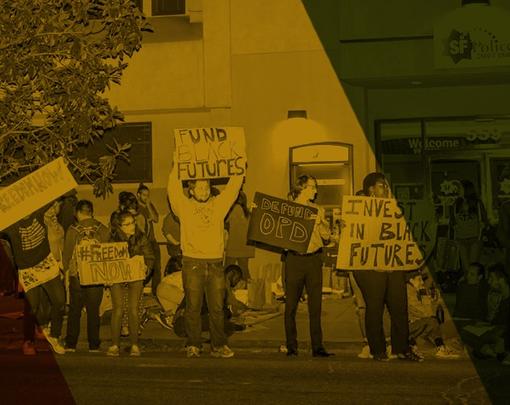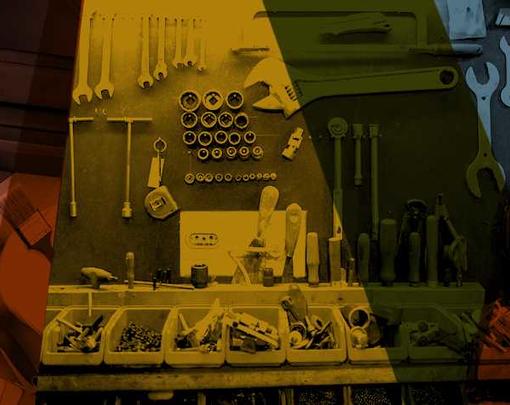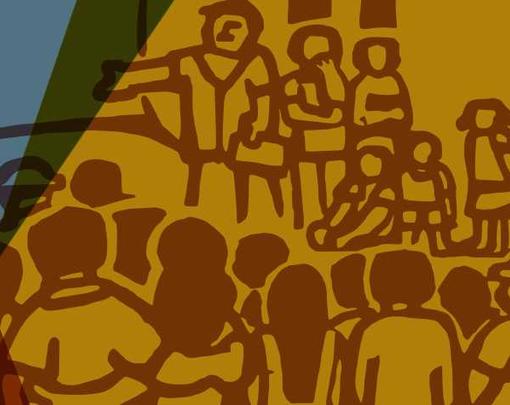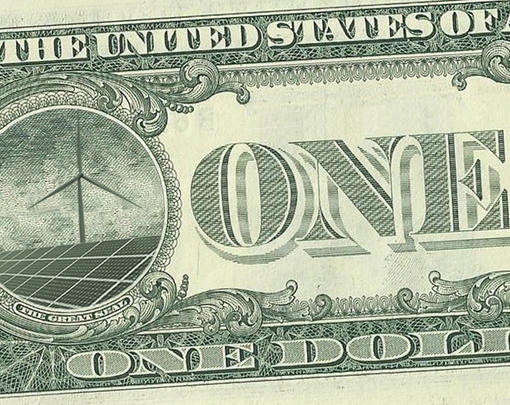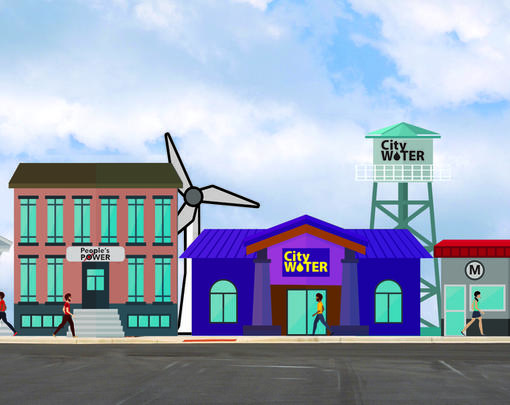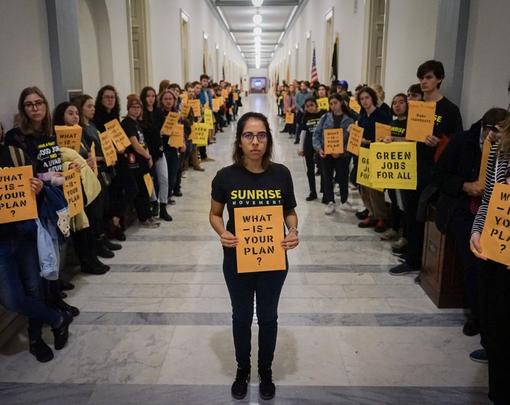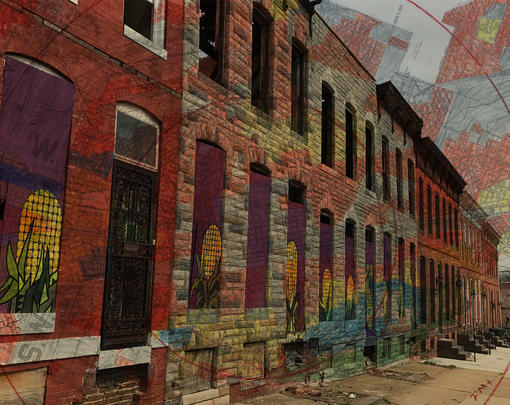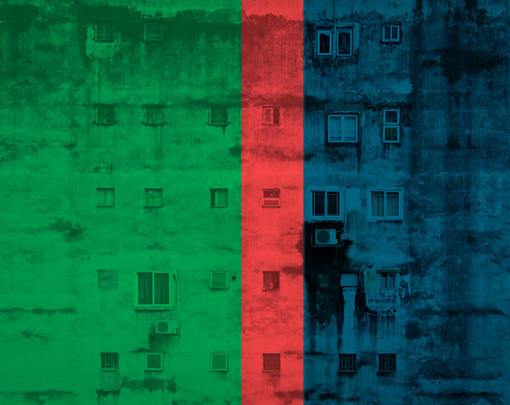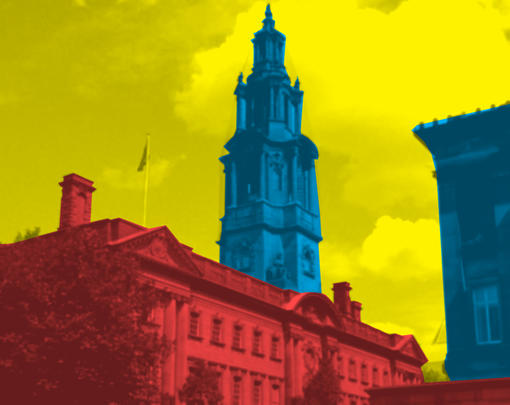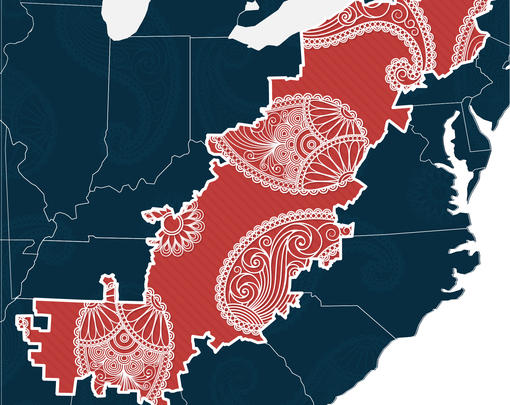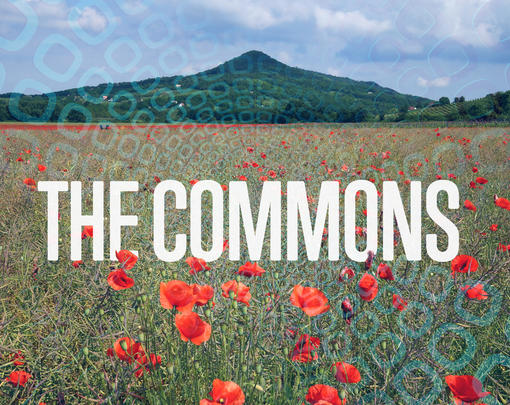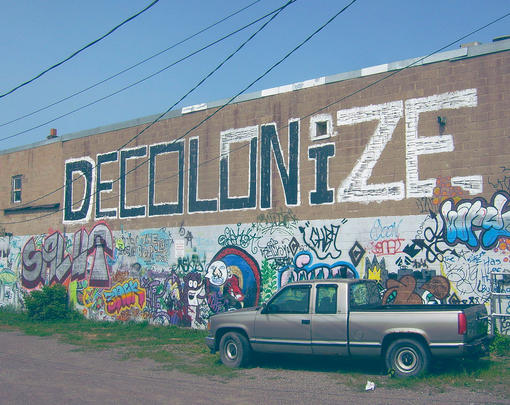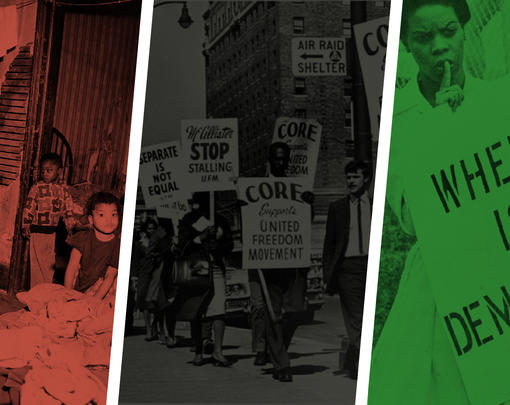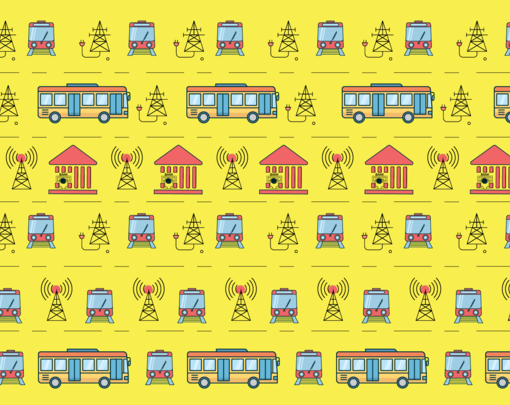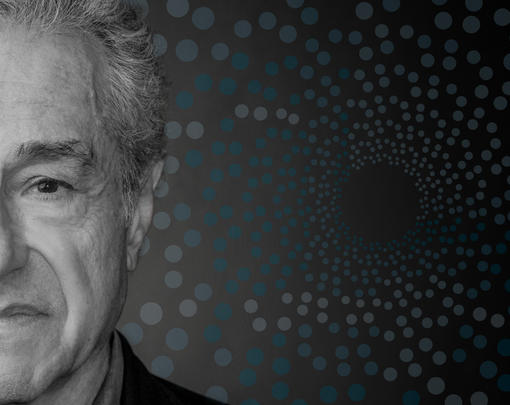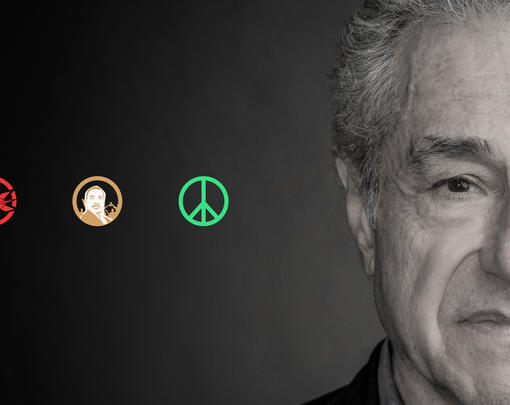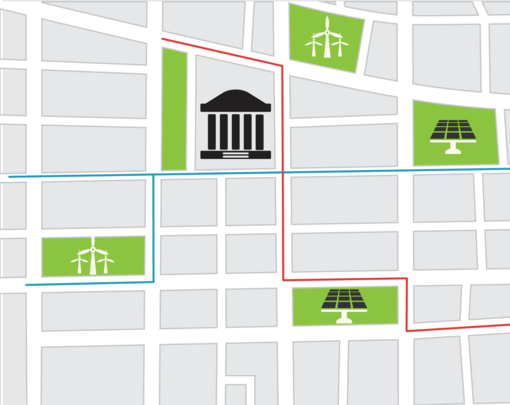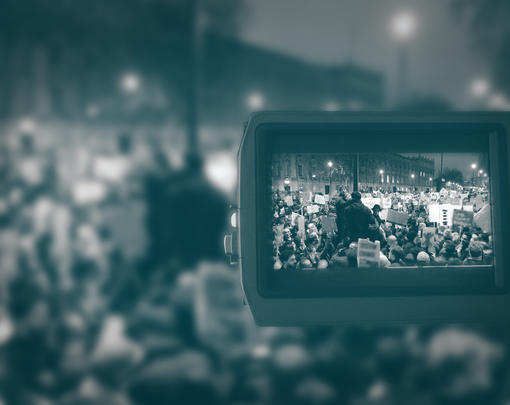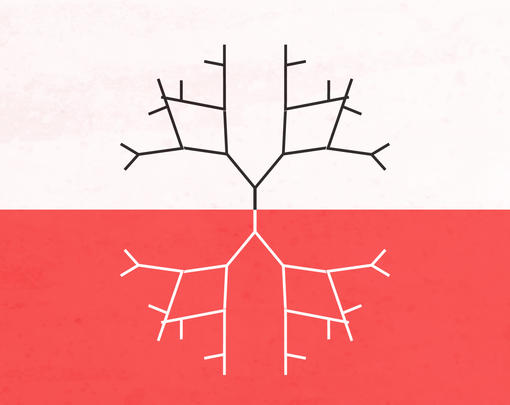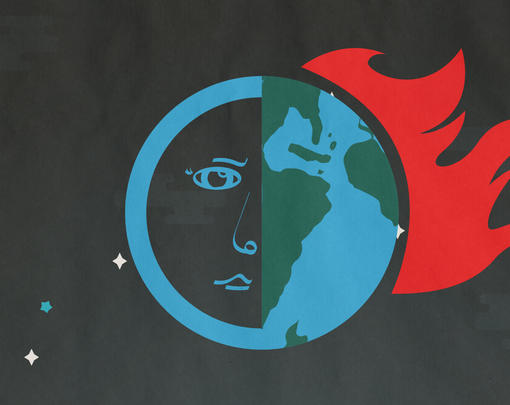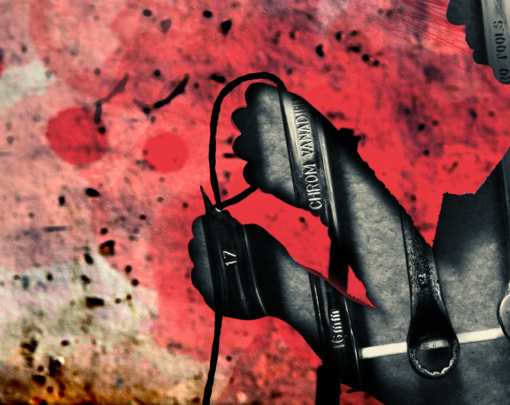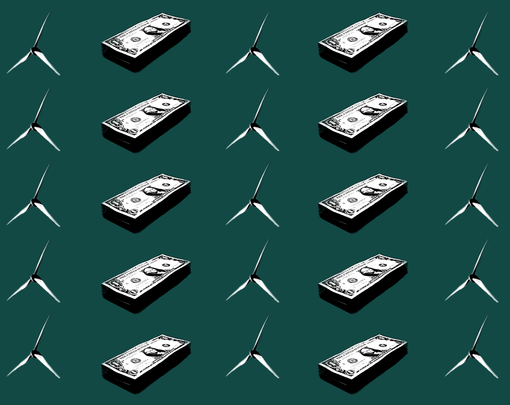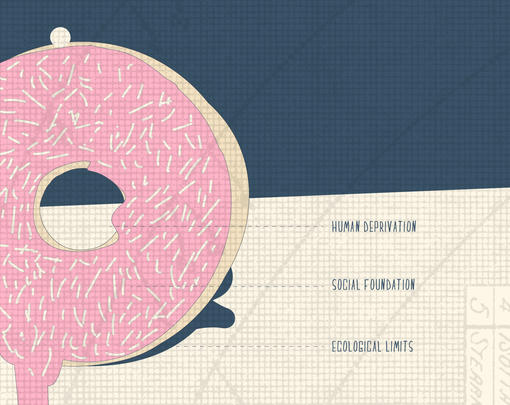This week, we speak with Dr. Dorian Warren about a wide range of subjects, from the persistent importance of unions and solidarity, to transformative electoral politics and guaranteed income schemes. In addition to serving as the President of the Center for Community Change Action, the Vice President of the Center for Community Change, and the Co-Chair of the Economic Security Project, Dorian is also a fellow at the Roosevelt Institute and the co-author of The Hidden Rules of Race: Barriers to an Inclusive Economy.
Subscribe to the Next System Podcast via iTunes, Soundcloud, Google Play, Stitcher Radio, or RSS.
Adam Simpson: Welcome to the Next System Podcast. I’m your host Adam Simpson and this week’s guest is Dr. Dorian Warren. Dorian, thank you for joining us on the Next System Podcast.
Dorian Warren: Thanks for having me, Adam.
Adam Simpson: Absolutely, by way of introduction, Dorian, looking at your CV I see you are engaged with a very broad range of work. You’re the President of the Center for Community Change Action, Vice President at the Center for Community Change, Co-Chair of the Economic Security Project and fellow at the Roosevelt Institute. You sit on numerous boards from The Nation to the Worker’s Lab and beyond. And I could go on…
Dorian Warren: I don’t sleep!
Adam Simpson: So much of your work in different ways is focused on the wellbeing of the working class. I hope that’s fair to say. How did you become drawn to the issues that you find yourself working on today?
Dorian Warren: So, it’s very personal for me and it’s the story of my family in America in many ways. I can trace my family back to the first generation after slavery to the Jim Crow South, which we might otherwise call, our system of southern apartheid. And my family tried to escape and successfully did to an extent, Southern racial terrorism and migrate North. They were part of the First Great Migration to Chicago from Alabama, from Mississippi, from Louisiana, from Georgia to seek a better life. And when they got there they found the conditions were a bit better but not fully better.
So, my great-grandparents and grandparents were very poor. My mother and my Uncle Frank Lee made it into the working class and the lower middle class and I think about three of my four grandparents, who were part of that first wave of The Great Migration, they ended up spending most of their careers as janitors in Chicago and in fact, became members of SEIU, the Janitor’s Local. My mother became part of the Chicago Teacher’s Union and that’s made all the difference in my life and the life and the life that I’ve been able to live.
My uncle actually became a nurse at Cook County Hospital and was part of the Nurse’s Union. So there are strong roots in my family, in terms of literally going from bondage into “freedom” and having nothing, then trying to escape the South and trying to get a better life. Being poor in the North, being working class in the north and making it to the middle class—my story is reflective of so many millions of others, White and especially Black, working class and middle-class people in this country.
And what we know from the data in the last 30-40 years is that my story is probably not as likely or probable for a poor Black kid born on the south side of Chicago today. My life goal is to try to re-open those doors of opportunity for a chance at the American dream that seems so rare these days.
Adam Simpson: Absolutely, absolutely. And I want to follow up on what you touched on. I read a piece of yours from last year in the Chicago Sun Times. You were writing about what collective bargaining and union affiliation meant for your family and how unions have provided a pathway to economic security for Black Americans more broadly. Can you say a little bit about how you view the role of unions in the American economy?
Dorian Warren: It’s very simple and it’s not just in the American economy, it’s the history of democracy’s last 200 years. No strong labor movement, no democracy. Plain and simple. You look around the world in terms of the most functioning, well-functioning democracies they tend to be correlated with very strong labor movements. The places that have less inequality, have stronger labor movements. The places with more economic and social mobility, stronger labor movements.
It’s not an accident that in the last 40 years there’s been an all-out assault on the labor movement and the rights of workers to organize and engage in collective bargaining. We have also seen inequality rise. We’ve also seen mobility decrease and the life chances of people become more constrained. So if you care about democracy, broadly, if you care about American democracy, if you have any belief in some aspect of the American dream, none of it is possible without a labor movement and a strong labor movement.
Adam Simpson: Absolutely. Recently I’ve seen commentators suggest that unions may be an anachronism in the age of the gig economy with the fissuring of work we’re seeing between jobs and benefits. On the other hand, we’re currently witnessing right now from West Virginia to Kentucky to Oklahoma and beyond an energized wave of union actions and achievements. So, I wanted to ask you given this current context, how do you view unions right now and in the 21st Century?
Dorian Warren: I’m glad you asked that question because it reminds me of when—and I’m not going to remember the year, I think it was maybe 1931 or 33—the President of the American Economic Association gave his presidential lecture where he announced the death and the end of trade unions as we knew them then, and basically gave this whole set of predictions about how trade unions as we knew them and the “new economy,” (boy that sounds familiar!), a new and industrial economy, that trade unions were an anachronism. That they were no longer relevant. That the model of unionism, which was based on skilled labor and craft, we call them craft unions or what we would call the building and construction trades today, that model is no longer relevant and therefore the labor movement would die.
A few years later we saw the biggest burst of American unionism: the new model of industrial unionism that had to be invented for the new economy at that moment. So that essay is not lost on me because for all the prognosticators who say that somehow the labor movement is over, that it’s dead, it’s just that we haven’t quite invented the new form of unionism that will be relevant to today’s economy and tomorrow’s economy.
So, you pointed out, right, that the wave of unionization happening—or not just unionization, but the actually riskiest type of collective action workers can take: striking and especially striking when they don’t have the legal rights to strike—that’s what we’re seeing in the reddest states in America: Oklahoma, West Virginia, Arizona, Kentucky. There is something going on in terms of the rebirth of the labor movement. We might add to that frankly the wave of unionization among millennials, especially in new media outlets and non-profits, including right here at Center for Community Change.
We’re very proud of having negotiated a collective bargaining agreement with our staff union. So there is this incredible wave for a new generation, particularly of those who are 30 and under, who see the role of collective action and the need for worker power in the workplace, regardless of what workplace looks like. I’m very confident we are going to invent the next wave of powerful unions for whatever kind of economy we want to call it. Whether it’s the “gig economy” [or what have you…]
Hey, if we get robots, I think we’re going to have robot unions. Because we’ll figure out a way to exploit them too. So I’m very confident: every time someone was called for the death of the labor movement and has started to give the eulogy, they have been proven wrong.
Adam Simpson: And regardless of how we feel about the power of unions, there’s no question that their power has been declining over the past few years, decades maybe. Do you have any thoughts on how these trends might be reversed? The old slogan, “There is power in a union.” How can we preserve that power from a policy standpoint?
Dorian Warren: Well, that is the political challenge I have been involved in with many people in the last decade around efforts to reform our labor laws. We had a debate in 2009-2010 around the Employee Free Choice Act, which would, in some ways, have been some Band-Aids on the problems of labor law today, in terms of the rights of workers to unionize and then collectively bargain.
So, myself and many others have been engaged in a long term project of rethinking the Wagner Act. If we were to write the National Labor Relations Act today for the 21st century economy, what would it look like? There are some brilliant proposals that are out there and in many different places on how to restructure labor law. So there has to be some kind of political intervention and we have to reshape the framework of labor relations in the country to match the economy that we are actually living in.
The Wagner Act of 1935 was appropriate for an industrial economy. It is obviously not appropriate anymore. And so what are the ways to re-write the rules, frankly, to empower workers? There’s not a dearth of ideas—the problem with any transformative or progressive policy proposal is the question of political will. We have to build the movement to win—that’s how we’ve only ever won any significant political gains in the country.
The sparks that we see among teachers, I think that is one good sign. As we’ve already mentioned, if you look at the wave of millennials who are organizing, I think there is something happening here and it does feel like the early 1930s, in terms of industrial action, is the old term that was used. The willingness of people to engage in collective action and to risk anything.
The thing about why I’m so attracted to the labor movement and why I fundamentally believe in it, unlike any other form of progressive politics or politics on the left, the thing about union organizing is when you take political action, you risk everything. You risk your livelihood. You risk your job. You risk your ability to feed yourself and your family. That’s not the case if you just tweet out something or sign a petition, not to diminish that activity, but to take collective action and to actually walk off your job, knowing you can be fired and permanently replaced because that’s the law, that is the highest risk that we know. (Aside from some other very risky behavior, like being exposed to white supremacist violence when you’re at a rally or something—that’s also very risky!)
But collective action at the workplace is incredibly risky and the fact that we’re seeing an upsurge at this moment I think is very, very helpful. I think it is the beginning of the building of the political will to transform our current labor law, which is deeply inadequate. And so the question is: how do we marry the political will and the political muscle that’s being built of people taking this risky collective action to the bold ideas that are out there on how to reform our labor law to actually promote worker power and worker’s voice?
And so stay tuned, I think, we’re on the verge of something really big.
Adam Simpson: I want to turn now to, The Hidden Rules of Race, Barriers to an Inclusive Economy. This is a book you co-authored with Andrea Flynn, Felicia Wong, and Susan Holmberg. My first question is about the hidden nature of these barriers. Obviously, these barriers are more hidden to some people than to others in our society. But what do you think are the reasons that these barriers remain to some extent invisible? Is it this ideology of color-blindness? Is it a kind of fetishization of deregulation and “meritocracy”? Why do you think these barriers remain hidden for all intents and purposes?
Dorian Warren: Well of course if you look at the entire sweep of history in the country…the way I like to think about it is in three numbers. So 25, 10 and 5. Those numbers refer to decades of this country. So the first 25 decades was a system of racial slavery. I’m started at roughly 1609 up to the Civil War. So there were explicit rules of race. Black people were property, not subject to human dignity or citizenship.
So, the rules are very explicit. So that’s the first 25 decades of this country. The next hundred years, the next 10 decades was the system of Jim Crow. Again, a very explicit system of racial rules—that is, a system, ultimately, of power and oppression and exploitation—that was around from roughly 1865 to 1965. We had a brief interlude of Reconstruction, where we tried to reconstruct our democracy in a more racially just way.
But then we basically gave up on that and after the Compromise of 1877, we struck a deal with the South that said, you can restore the racial rules you had before, there’s a famous book called Slavery By Another Name that describes this. So if you think of the first 25 decades of racial slavery, the next 10 decades of Jim Crow, those were systems of power in which some people benefited and some people didn’t and the technologies of power aren’t static.
That last number 5 refers to the last 5 decades of the last 50 years of so-called freedom, since the Civil Rights gains of the 1960s. It’s not an accident that after those first 35 decades of very explicit racial rules, that in response some of these rules therefore had to be less explicit. They had to be, as you had already put it, colorblind in a sense. There had to be ideological justifications for having rules that people knew inherently created unequal outcomes between Blacks and Whites and frankly other communities of color and Whites.
The technology of power made it so that we develop these hidden rules. So to take an example, you think of the justifications for voter suppression laws. Republican politicians and conservatives will tell you, “It’s not about race. It’s not about anything else. It’s about democracy and these other values.” When we know, because we actually got some smoking gun evidence now, that it was really about suppressing Black votes, student votes. So there’s an explicit, in this case, racial animus or intention behind voter suppression laws of the last decade or so.
To me, a part of the book was to uncover these hidden rules. Take the War on Drugs for instance. Mandatory minimum sentences, well, on the face of it they are race-neutral. But we know that there are disproportionate racial impacts and we could probably if we dug a little bit more, understand that there was some racial intentionality behind those. But as some of the advisors to President Nixon and President Regan used to say, “You can’t talk about race in the same way.”
Right, so it’s part of the Southern Strategy of our politics. What Ian Haney Lopez will call, “strategic racism.” So you can’t exactly talk about race in the same way. Maybe you can dog whistle. Maybe you cannot even say it, but you know that it will have this effect on people. So the whole point of the project was to uncover what we call, “the hidden rules of race.” What we didn’t anticipate was that we would have some dude come along and run for president and be kind of a flat-out racist and make race more explicit again.
In some ways, like in a moment of crisis, when you look at the flip side of it and it creates some opportunities. In some ways, the Trump campaign and presidency has awakened an entirely new generation to the use of explicit racism for electoral purposes and for political purposes. So yes, there are lots of rules that are still hidden. There are plenty of racial rules that are not hidden to date. And our task is to unmask the rules that are hidden, to continue to highlight the ones that are explicit and to fight against them all and to transform them into rules that are racially just and promote racial equity.
Adam Simpson: There’s a number of ways of describing the problem of racial inequality. You can talk about disparities, employment, or disproportionate rates of poverty, or gaps in wealth, etc. How do you often describe just the problem? How do you get your hands around the problem of racial inequality?
Dorian Warren: At least for me as I’ve been thinking about this, honestly for the last 20 years, I think I have used different language at different times. And it often depends on the audience. I’m trained as a social scientist and we often use the language of disparities. We use data. But there is also a deeper and longer tradition in political and social theory where we have some other concepts. We might call it racial exploitation. I like to think of it today, actually, as we sit here and have this conversation, I think we live in a racial caste system.
If you look at the data there’s a Raj Chetty study that just came out just two or three weeks ago, that essentially shows that for two out of three poor black boys, in particular, born in this country, they’re basically going to stay poor their entire lives. If that’s the case, if the accident of your birth determines your whole life destiny based on race or some other characteristic, but in the American system based on race, then that looks like, it smells like, it tastes like a caste system to me. Where there is no ability to cross the boundary of where you were born.
That’s the language I would use today—but we might use a range of other concepts besides a racial caste system. Yes, we use the racial rules in the book. Other people use other concepts. The point is there is a deep problem that’s not new. It’s been with us since the founding of the country of life chances and opportunity shaped by one’s, not just race by the way, but also class, I would argue, and those things have been so intertwined in the American context. It actually hard often to actually separate them out.
So, however one can get their mind around the fact that we have a deep fundamental problem of race, whether it’s racial inequality, whether it’s white supremacy, whether it’s racial capitalism (which is actually a term that’s come back into use in the last two or three years among some scholars). It’s a deeply unequal system and it requires us to be clear analytically about not just the role of class by itself or not just the role of gender by itself but in the American case, the role of race and how they intertwine or intersect, to use a common term now, with each other. How these systems of exploitation and power and privilege shape people’s life chances.
Adam Simpson: Absolutely. And I know there’s been a kind of trend since the 2016 campaign cycle, particularly on the Democratic and the left sides of the political spectrum in the United States to talk about an electoral strategy. Whether we should be thinking about the working class. Of course, we’ve heard a lot about the white working class since Trump’s victory. The argument seems to be saying that we should think about the working class, as opposed to thinking about “identity politics.”
Dorian Warren: So much to say about this. Number one, this is how actually race and racism works—it erases the notion that class is an identity. So to say “identity politics” is kind of ridiculous because if you’re working class, that’s an identity politics. Because if it wasn’t people wouldn’t gravitate towards it as a solution. It’s not like anyone walks in the world without an identity that is not politicized.
So, “white working class” is also an identity. So just like semantically the phrase really bothers me because it implies that there is a group of people that actually have no identity and then this other group of people out here that have an identity that’s screwing it up for the non-identity people. But no, we all have identities. The question is—and this is the problem with the Democratic Party, and it’s an endemic problem among progressives and the left—we have never been able to quite grapple with the race and class problem in this country.
Right, it’s like the Achilles Heel for our side. And so what I would say, I remember this conversation actually after the 2004 election when John Kerry got beat by W. And there was this whole debate. This is like Groundhog Day for me in a sense, at least in my lifetime. It’s like, “Oh we’re going to have this debate again.” So what were y’all doing? The smart Democratic consultants, who also suggest that we focus on the white working class.
So, you had 12 years to figure out your magic bullet messaging to win over the white working class? I’m sorry, time is up. If you can’t figure it out, then you’re actually not smart about it and you’re probably wrong. So, go away because you keep saying the same thing over and over and we get the same results. Right, oh no let’s focus on the white working class.
Here’s what we know. We know for the white working class, those who are in unions vote differently than those not in unions. And it’s partly because that’s an institutional story, it’s not a messaging story. It’s about connecting people to an institution where they have a broader collective identity and they see their fates linked to other people that have no power in society. And that takes organizing and long, hard routine and sustained conversations to have a vision of moving people to a place where they can actually see their own freedom and liberation bound up with others’.
There is no magic bullet messaging that’s going to get people there. You actually have to talk to people and have really hard conversations with them over and over and over. So what I would say is that we always lead a multi-pronged strategy. Here’s the thing, Hillary Clinton lost in 2016 by, what was it, 80,000 votes and if you think about it, if only she had mobilized 20,000 more Black people in Milwaukee, 20,000 more Black people in Detroit, 20,000 Black people in Philadelphia, we wouldn’t be sitting here in this craziness and having this conversation.
So, it’s both… [We need to think about ]how do you organize the base, who actually for good reason weren’t motivated to vote for a particular candidate? How do you actually also talk to white poor people and white working class folks—which by the way this is precisely 50 years ago what Dr. King was trying to do with his poor people’s campaign. It was a multiracial campaign to convince poor white people and poor people of color that their interests were linked and their fates were linked.
It’s the same thing Bobby Kennedy was trying to do. He was like the electorializing version of King. King was trying to build a movement. Bobby Kennedy was trying to electorialize the issue of poverty facing white folks and black folks. So what is the strategy to also talk to white working class and poor people and say, “Your fates are actually linked to the people you’ve been taught to hate. Because guess what? White supremacy and racism actually harms white people too as it always has because when you chose your racial identity over your class identity, you actually suffer on the class side.”
Right, it’s not a coincidence that the places that have been faced with the most deindustrialization—especially in poor white rural and some urban places that used to be industrial—it’s not a coincidence that those are the places that have high rates of opioid addiction. That have incredibly increasing rates or morbidity and early death. So there’s a way in which racism has also harmed white folks because political elites have used race as a wedge to convince poor white people that they should be tied up to corporate interest and elite interest, which has then totally screwed them economically.
So, what are the ways that we can organize and talk to white folks and re-shift their identities to align with the rest of the country? It’s a radical notion, like what’s the political product that aligns poor and working-class white people with black women? That’s the question. How do we align those groups? Because it’s not enough to say, we’re just going to focus on one or the other because the numbers don’t add up.
So, you need some white folks and the American democracy to vote and alignment with progressive Black folks, with Latinos with Asians with Native Americans. So I have to say this is so frustrating to me at least among progressives and on the left that we keep falling into the same traps and we get seduced by our own ideologies and there’s not enough of us actually going out and doing the work to actually do the organizing and have the hard conversations and to really, really build these political coalitions.
Adam Simpson: Right, right.
Dorian Warren: Sorry, that was really long-winded.
Adam Simpson: No, no, no, that was great! A final question about, The Hidden Rules of Race and then I want to move on to talking about—because it’s very much related to what you just said—the work you’re doing with Center for Community Change Action. There are a number of policies that suggest the hidden rules of race. But the recommendations begin with tallying up the legacy of discrimination and investigating the feasibility or reparations, which is a project that I believe John Conyers had been suggesting for decades, I believe.
Would you and your co-authors describe this as an essential precondition and if so, why? And I know that there are a ton of other policies but are there any that you might highlight as necessary compliments to such a program?
Dorian Warren: That’s a good question. I don’t know if it would be an essential precondition. It’d be a crucial one. Maybe it’s a slight distinction. You have to understand that we wrote the book self-aware that we are at the Roosevelt Institute. And while we’re all proud of the New Deal and of the legacies of both Franklin Roosevelt and Eleanor Roosevelt, we’re also very clear about the racial exclusions in New Deal programs.
So, yes, was the New Deal an amazing thing? Absolutely. Did it help to build a middle class in this country? Absolutely. Probably more than likely built a white middle class because Black people are excluded from the Social Security Act at first. They’re still these occupational exclusions in the National Labor Relations Act, the Wagner Act, that gives workers the right to organize. To this day agriculture exclusions and domestic workers are excluded. The intention there was because those were the occupations disproportionately filled by Black workers in the South.
Same with the Fair Labor Standards Act, the Minimum Wage Act. So I can go on and on about the exclusions in the New Deal, which is why we argue you can’t think of progressive social policies for the 21st Century without taking into account both the history of exclusion.You don’t just get to wipe the slate clean and say, “Okay that may be true.” And this is why I gave you those numbers earlier, right, the 25, 10, 5s. So the first 25 decades of explicit racial exclusion. Then another 10 decades of racial exclusion. That adds up to 35. There have only been 5 decades since we’ve said, “Oh, that’s probably wrong.”
Well, you don’t get to just wipe the first 35 decades clean as if nothing happened, as if within 5 decades we have just caught up. So the argument around reparations is that we can pass the most progressive social policies that impact poor and working-class people, but that would do nothing around the racial wealth gap in this country or the fact that Black people are just much more in debt than white people historically.
Here’s the tricky part—and I think undergirds a lot of our discussion today. I’m a strong proponent of racial justice, of economic justice, of gender justice and I will always fight for that the rest of my life. There is this conundrum that we have I think in this historical moment and that is what actually happened to white middle class and working class people in the last, I would say 30-40 years, because of the growth of economic inequality and the rise of what I would call an oligarchy and economic elites.
What’s happened is that there’s been a declining value of whiteness in this country. So we have to find a different way of making the case for racial justice in a context when whiteness doesn’t mean as much as it used to. And we actually have to acknowledge that and not say, “therefore we should center white people in the political strategy to win.” But we actually have to acknowledge that because that’s actually different than movements before us.
So how do we acknowledge that fact and build a different kind of transformative political alliance? One that says to working-class and poor white folks, actually, you’ve been doing it the way of “to hell with Black people and people of color” for the last 40 years electorally. Maybe try something different and your fortunes might increase? Maybe what’s the vision that we can offer people that says, actually, okay, I see you. I see this thing that gave you dignity and identity. Like a white identity because that meant a lot. I see that it’s been declining the last 40 years. You’re not going to get it back. What’s the political alliance that we can construct that allows all of us to actually claim what is rightfully ours in this country, in terms of economic security, a world without racism?
So, what’s that alternative vision? And I think we’re struggling with that. I think we’re actually closer than we’ve ever been before on the one hand, in terms of the history of this country. But I still think we have to close that circle of creating the larger circle of we. Who belongs in the country and how do we tie people’s fates together so that they truly believe it and are willing to fight for it and vote for it in a different way than what we’ve seen in the last 40 years.
Adam Simpson: So, I do want to turn to your work with the Center for Community Change Action and correct me if I’m wrong here but the Center for Community Change Action, focused on building and connecting grassroots movements and “bulking them up” for capacity toward political and economic change. Can you describe what that looks like in practice? What that looks like in your work?
Dorian Warren: So to give you a couple of examples, in 1999, we were engaged probably 30 or 40 grassroots groups in the country around welfare reform. So this is the mid to late 90s, and out of that fight, for some that might not remember that fight around welfare reform—under a Democratic administration by the way—there are some pretty serious and harmful exclusions based on immigrant status in the ‘96 welfare reform fight.
And from that fight by the late 90s there was a realization that we had: we needed to raise the issue of immigration reform. That something had changed in terms of migration patterns, and the ways in which immigration was being used as a weapon against our side. So if you actually go back to the 90s in California, Prop 187 was an issue that was anti-immigrant, in which Pete Wilson was reelected, if I’m not mistaken, as governor.
So, in the late 90s, we as an institution said, we have to actually build an immigrant right’s movement. Almost 20 years ago there was nothing, and now there is a vibrant immigrant rights movement. We work with roughly almost 100 immigrant right organizations around the country and so we knit them together across geography into a national campaign strategy. So there are many groups in different places, in Los Angeles, in Chicago or New York City that are doing great on the ground immigrant right’s organizing and changing municipal laws, if you think of sanctuary cities for instance.
That’s been the success of these very powerful organizations in those places. But we needed to knit them together nationally into a national campaign. So one thing that we do at Center for Community Change and Center for Community Change Action is to knit these disparate immigrant rights groups together into a national movement.
Secondly, we provide resources and capacity building, by that I mean, help to raise money to fund the work, the organizing work of these groups. We provide strategic communications help. We have done a lot of work in figuring out how do we actually create a strong narrative around immigrants and immigrant families and communities in this country, and we try to do that work across our network of immigrant rights organizations to knit a common narrative. And then strategically, we, and this goes into the electoral realm here, right, we’re targeting roughly 20 congressional districts where immigrant voters and many of their family members who can’t vote, we think these districts that we’ve targeted, those voters can make the difference.
And especially for anti-immigrant right-wing politicians, whose districts have changed geographically. So our job is to help with that strategy in thinking about, okay, the route to national policy change is not in Washington. It is actually through localities in the states. That’s how we get change in Washington and that’s how we build the power and conditions to achieve national policy change. So that’s partly what we do, in terms of helping grassroots groups building their own power but also knitting them together in the national strategy for big bold policy changes at the national level.
Adam Simpson: So, regarding the electoral strategy in general, because I know political engagement can often feel somewhat constrained by mainstream political discourse. How do you and the Center for Community Change Action approach electoral campaigns with a framework for broader long terms systemic change and bottom-up social movements that you’re helping coordinate and cultivate?
Dorian Warren: So, in some ways, we try to see ourselves and our local grassroots partners as movement building organizations. So we have transformative aspirations and electoral politics, which was for a long time disdained in the world of community organizing. We have come to realize it is an important tool in the toolbox. Not the only one but important. So our approach to it then has been different than what your average Democratic consultant might say.
We believe in a permanent organization. We don’t believe in coming into a community two weeks before to knock on doors with people from outside that community, who no one would trust or has never seen before. That’s kind of a ridiculous thing just on the face of it. Three, we believe in starting early. So we are actually in three states right now, already on the ground with our local partners. Talking to people about the issues and values they care about. Not candidates, but the issues and values that they care about. Recruiting grassroots leaders, who can be in some ways ambassadors and trusted messengers that have a network of people, whether it’s in their geographic neighborhood or on Facebook or whatever. People that they engage with and trust them and they trust.
And we’re starting these conversations now, this is April, it’s not October, it’s not November. We’re starting these conversations now with the belief that if we have sustained engagement and conversations about the issues, we can actually get people invested and excited about the election this fall—but here’s the last point. It can’t just be leading up to the election and then everyone goes home. If grassroots organizations are not stronger after election day then it’s pointless. The need is for permanent organizations, strong organizations, whether it’s in the digital space or on the ground.
Because guess what? After election day, we might win a few races but then how do we hold those people accountable, right? This is our philosophy: it’s about building permanent organizations, electoral politics is one part of the strategy, not the strategy and maybe not even the most important strategy—but it’s an important part of the strategy that we have to take seriously.
And in some ways, we have to reclaim our democracy back from the oligarchs and frankly, back from the parties. I’m from Chicago, so we have this old saying, “No permanent friends, no permanent enemies.” I would argue that applies now in this context too. We stand for certain values of justice, of freedom, of democracy regardless of where the parties stand. It’s up to us to organize the parties and force at least in this case, one of the two major parties.
In other cases, one of the boards I’m on is the Working Families Party. There are other places where we have an opening to support candidates that are willing to run on a party platform that aligns with our values and the values of our communities. So I think we have to be smarter and more strategic about electoral politics and it can’t be the methodology that the D.C.-based Democratic consultants would believe that you just find the right words to say and people are just going to magically vote for you. They’ve been doing that and getting rich of that for a long time and it hasn’t transformed our politics.
So we believe in the year-round, 24/7 engagement with grassroots community leaders and organizations. Electoral politics is one element of the strategy but not the only element of that strategy. We have to actually have to step into our own power, in a sense, and reclaim the parties and our democracy for ourselves. We can have a whole debate about third parties and what that means and the Democratic Party and all that but the role of social movements is to shape the party system and party structures and party agendas. Not the other way around.
Adam Simpson: Excellent. I want to move now to talk about your work on the guaranteed income strategy with the Economic Security Project. As I mentioned, you’re one of the co-chairs along with Natalie Foster and Chris Hughes. And I want to ask you just outright—just to be clear for the audience—a traditional universal basic income would mean that everyone gets a check regardless of employment or not, say $1000 a month.
And there are different ways of approaching guaranteed income schemes, I’m not going to ask you to hitch your wagon to one or the other but what do you think a guaranteed income would mean for working families in the United States?
Dorian Warren: Well that’s easy. It would mean the abolition of absolute poverty, which we have the resources to do. We don’t have the political will to do it. It would mean economic security so that… look, if you get $1000 a month, you’re not getting rich. It’s $12,000 a year. It’s actually the official poverty line in the United States as we measure it. In a place like New York City, probably the poverty line is more like $20,000. Right, so it actually wouldn’t get people out of poverty.
But nonetheless, it would mean that we could eliminate absolute poverty in this country. People would have a sense of security and not worry about having to starve or to seek shelter. These are basic human rights, which we don’t like to talk about in this country, basic human rights that everyone should be afforded by virtue of being a human being and human dignity. Either we believe that or we don’t at some basic level. Either we believe that there’s dignity in every human being or we do not.
And if you believe that there’s dignity in every human being then nobody should ever have to live in poverty. Nobody should ever have to starve. No one should have to live on the street or be homeless. So a guaranteed income would provide those basic necessities. It would be an income floor that would promise economic security to everyone in this country. And we have lost that aspiration and that vision. Frankly, we used to have it but we lost it. And I think it is now time to reclaim it. We have the money. We have the resources. Some policy-wonky people would like to take you down a rabbit hole of saying, “Oh we can’t afford it blah, blah.” We can afford it. This is just a matter of political will and power.
We can figure out how to do it. That’s not the question.
Adam Simpson: So that’s interesting to me. You’re saying we don’t have the political will to abolish absolute poverty. What role then, do you think, poverty plays in the system? Why would we not have the will to eliminate poverty? Does poverty play a role in our system would you say?
Dorian Warren: Oh, for sure, right? In every capitalist system, poverty is a necessity. There is no question. Show me one capitalist country in the history of capitalism where it didn’t produce poverty. It’s an inherent part of the system. Now how people deal with that inherent part of the system has been a different question. So in some countries, there is social democracy, where redistribution, tax and transfer, acknowledges the system creates poverty—but we are after the fact going to tax the wealthiest and create a floor so that poverty doesn’t exist, knowing that it’s an inherent feature of the system.
Or another way to think about it is, when we have debates about poverty, we’re always examining poor people and their behaviors and we never ask the question, “Well who profits on poverty?” This is the old Dr. King question that he posed in his last book. Who profits from poverty? Somebody does. When you start asking it that way and looking upward and not downward and you’re like, “Oh, right. You can’t have rich people without having poor people.” It’s just inherent.
So the question—it’s not even a radical question—is basically asking can the United States be closer to a social democracy that provides some minimal protection for its citizens and residents because we actually have some value and believe that, yes, this what the system creates but we actually think it’s wrong and therefore no one should have to live in poverty or have their life determined by being born in poverty? That seems fundamentally unjust and unfair.
So that would be my answer is, yes, poverty is a necessary inherent feature of capitalism. It doesn’t mean that we can’t do anything about it. And if we, so-called believe in the “American dream” that one’s station in life shouldn’t be determined by birth. Then we have betrayed that so-called “public philosophy” for the entire history of this country.
Adam Simpson: And we’re close to time. So I’m going to condense this into one question. Forgive me because it just becomes a two-parter! We’ve talked about racial inequality and we’ve talked about unions, I’m curious what you think a guaranteed income scheme would mean for both of those issues, which you’ve done so much work on, on the power of unions, as well as, on racial inequality broadly in the United States.
Dorian Warren: So, a couple of things, and by the way let me say, I know there’s a debate right between people that are in favor of a guaranteed job program, and people in favor of a guaranteed income. My reference for both is the Black Panther Party platform of 1966, as well as, Dr. King, who didn’t see an either/or between those two things. In the case of the Black Panther Party, ten-point platform, number two argues for a guaranteed job or guaranteed income and in Dr. King’s last writings he was also making an argument for a guaranteed job or a guaranteed income.
So, I don’t see those things are mutually exclusive. I actually think we should be fighting for both. I think the problem with both is that we don’t have the political will or power to win either one at this moment. So that’s the challenge ahead of us. Now, what would it do? I think there are a set of untested hypotheses that we’re hopefully testing out, for instance in Stockton, California. It could be the case that if everybody had a guaranteed income of say $1,000, basic necessity is taken care of for. That could increase individual worker bargaining power.
If I don’t have to rely on a job, and a crappy job, to survive. I can say, “No.” And if you have thousands, if not millions of people saying, “No” to really crappy jobs because they have some economic security, it would force wages up. It would actually give workers potentially somewhat more bargaining power to actually reject a really crappy situation. Now that’s a hypothesis. We don’t know if that’s the case. We have some hints from say, some of the Scandinavian countries, so Sweden or Denmark or Norway, that have not exactly a guaranteed income, but they have flex security.
Right, so they have some kind of social protections that offer people economic security. They have a high standard of living and frankly, more happiness in their societies. So the guaranteed income, the idea is that it could actually bolster individual worker power, which could also, therefore, feed into collective worker power. Think of it this way—it’s a universal strike fund. The strike weapon is what workers have as we were talking about earlier. It’s very risky to go out on strike because you lose income, which why unions traditionally have built up strike funds.
So what if everybody had essentially a strike fund? And they could say, “You know what I can walk off the job and still put food on the table and not worry about basic necessities being met.” So it’s a hypothesis, right? It could potentially increase individual worker power and collective worker power. I think it’s one that we should test and we should find out. And you know what, I could be wrong. I’m happy to be wrong. If it’s not the case then I will search for another better idea but right now we don’t know and the idea is to try and experiment and see if this could be the case.
In terms of racial inequality, it would go a huge way towards addressing especially the racial wealth gap and the lack of assets and the overabundance of debt that Black Americans have. But it wouldn’t by itself, it’s not enough. Like just a universal basic income or guaranteed income program, it doesn’t actually do anything to address the structures of racial capitalism and the fact that the majority of Black folks have, what is seven cents for every one dollar of white wealth.
So, as you probably know, I’ve written a proposal that combines what I think of as the two least popular ideas in American politics, reparations and guaranteed income and I said, let’s mash them up. So I think we should have a system of guaranteed income for everybody and I think Black Americans should get a little extra as sort of a form of reparations. So maybe it’s $1200 a month instead of $1000 a month. To make up for the long history of racial exclusion and racial exploitation.
Adam Simpson: Absolutely. Well, Dorian that brings us to time and I don’t want to take up too much of your time because as we read off on your CV you have a lot of demands on your time. But is there anything about your work or about anything we’ve talked about today that you feel like we haven’t touched on that you’d want to add before we left off.
Dorian Warren: I think we covered a lot of ground. So thanks for doing a whole bunch of research. And asking like really hard difficult questions. I really appreciate it.
Adam Simpson: Absolutely, well thank you again and we’ll see everyone next week on the Next System Podcast.


